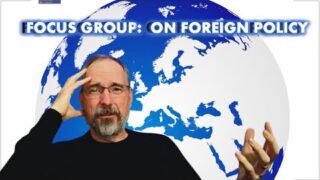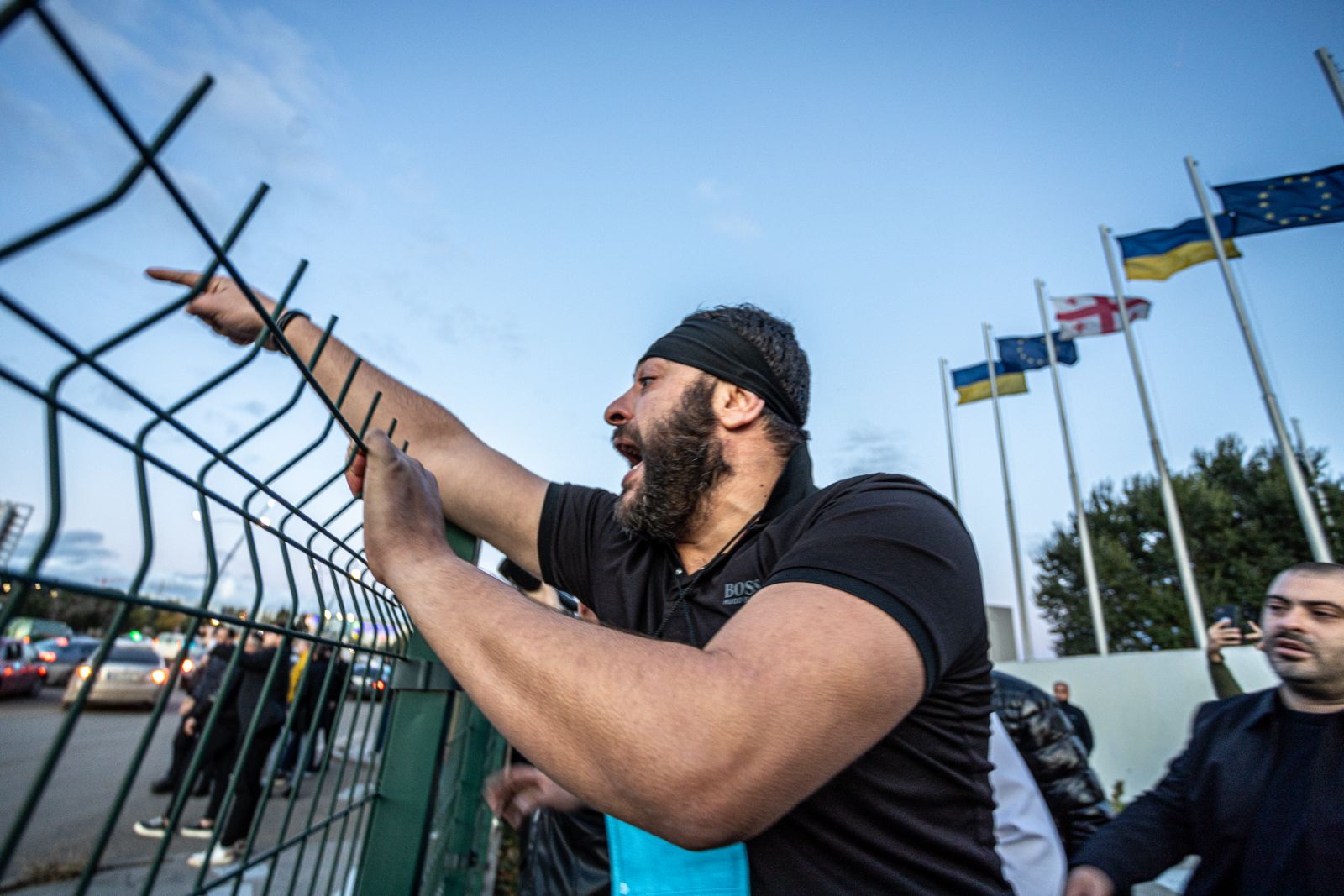
Georgia teeters on edge as pro-Russia party claims disputed win
Two decades after the Rose Revolution made Georgia the first post-Soviet state to break away from Russian influence and pursue a pro-Western course, the country faced a political stalemate.
By October 2024, the nation faced a pivotal choice: either to reaffirm its Western-aligned path or to continue its drift toward Russia — a shift that had gathered momentum since the pro-Russian Georgian Dream party rose to power in 2012.
Over the past decade, the Georgian Dream has shifted from its initial promises of European integration toward a more ambiguous stance that many view as increasingly influenced by Russian interests. This shift has been punctuated by recent legislative moves, such as the controversial “foreign agents” law in May.
Inspired by similar Russian legislation, this law requires foreign-funded entities to register as “foreign agents,” sparking fears of a Kremlin-style crackdown on civil society and independent media.
The stakes skyrocketed during the 26 October parliamentary elections, with the pro-European opposition determined to push back against Georgian Dream’s Russian-inspired “foreign agents” law from May — a sign that the battle lines are just being drawn.
Polling day shrouded in doubt
The opposition parties had a chance to band together, but internal disputes broke them apart. Instead, they split into three alliances and one additional party, all pushing for faster integration with Europe. They hoped to round up enough votes collectively to beat the ruling party and take control of parliament with a coalition majority.
By opting not to unite under a single banner, Georgia’s opposition lost the chance to turn this election into a decisive choice about the country’s European future, causing them to miss out on votes—particularly from those who didn’t want to back a specific party. Additionally, they struggled to lay out their vision for policies beyond EU integration, further undercutting their appeal.
The election atmosphere reached a boiling point after the Central Election Commission (CEC) announced on Sunday night that the ruling Georgian Dream party had won with 53.92% of the vote, defeating four pro-European opponents, which received 37.75%.

The opposition parties disputed the results, claiming widespread election fraud and accusing Georgian Dream of using its influence to sway the results in its favor, vowing to contest them.
“The fraud we estimated to be around 5% is clearly much higher,” a high-ranking opposition source told Euromaidan Press.
The outcomes of these elections could have significant ramifications for the political future of Eastern European democracies, affecting not only Georgia but also Ukraine’s efforts to resist Russian aggression. This situation is critical for other Eastern European nations caught between East and West, striving for European integration while grappling with Russia’s hybrid interference.
The high-stakes vote has drawn parallels to Ukraine’s 2004 Orange Revolution and 2014 Euromaidan Revolution. In these pivotal episodes, Ukraine rejected election fraud that handed an electoral victory to pro-Russian President Yanukovych and his subsequent reversal of Ukraine’s pro-Western path, respectively.
Russia’s 2014 invasion of Ukraine, which culminated in the 2022 full-scale war, is seen as Russia’s aggressive bid to restore its sphere of influence in the region. This scenario haunted Georgia’s electoral campaign, as the ruling Georgian Dream party cast itself as the “party of peace.”
The party’s campaign made waves by featuring billboards of Ukrainian cities ravaged by Russian forces. By highlighting the destruction, the campaign sought to knock down the pro-European opposition, framing them as a destabilizing threat in an already volatile region.
Georgia gripped by fraud allegations
The election was tainted by reports of widespread fraud, as detailed by the local observer group WeVote.ge, which monitored polling stations throughout the country. Their findings revealed that the Georgian Dream orchestrated an extensive scheme to rig the results, which involved distributing pre-filled ballots to confiscating personal identification cards.
“We’ve witnessed ballots already marked in favor of the ruling party rigging de facto the electronic ballot or voters being handed multiple ballots,” a We.Vote lawyer told Euromaidan Press from its headquarters.
The NGO also pointed out that criminal groups tied to the ruling party intimidated voters and observers throughout the day. Ana Minadze, an activist with the NGO Free Georgia, reported that men were hanging around some polling stations in Tbilisi with lists of voters, offering cash to secure support for the Georgian Dream. Similar accounts have come to light from a senior source within the opposition United National Movement (UNM) party.
Throughout the day, Georgian Dream militias attempted to intimidate opposition parties. Around 6 PM on Saturday, the UNM headquarters was stormed by masked men, resulting in at least one injury.
Shortly after the incident, Tinatin Bokuchava, president of UNM, called it “a clear strategy to terrify voters if they want to vote for the opposition.”
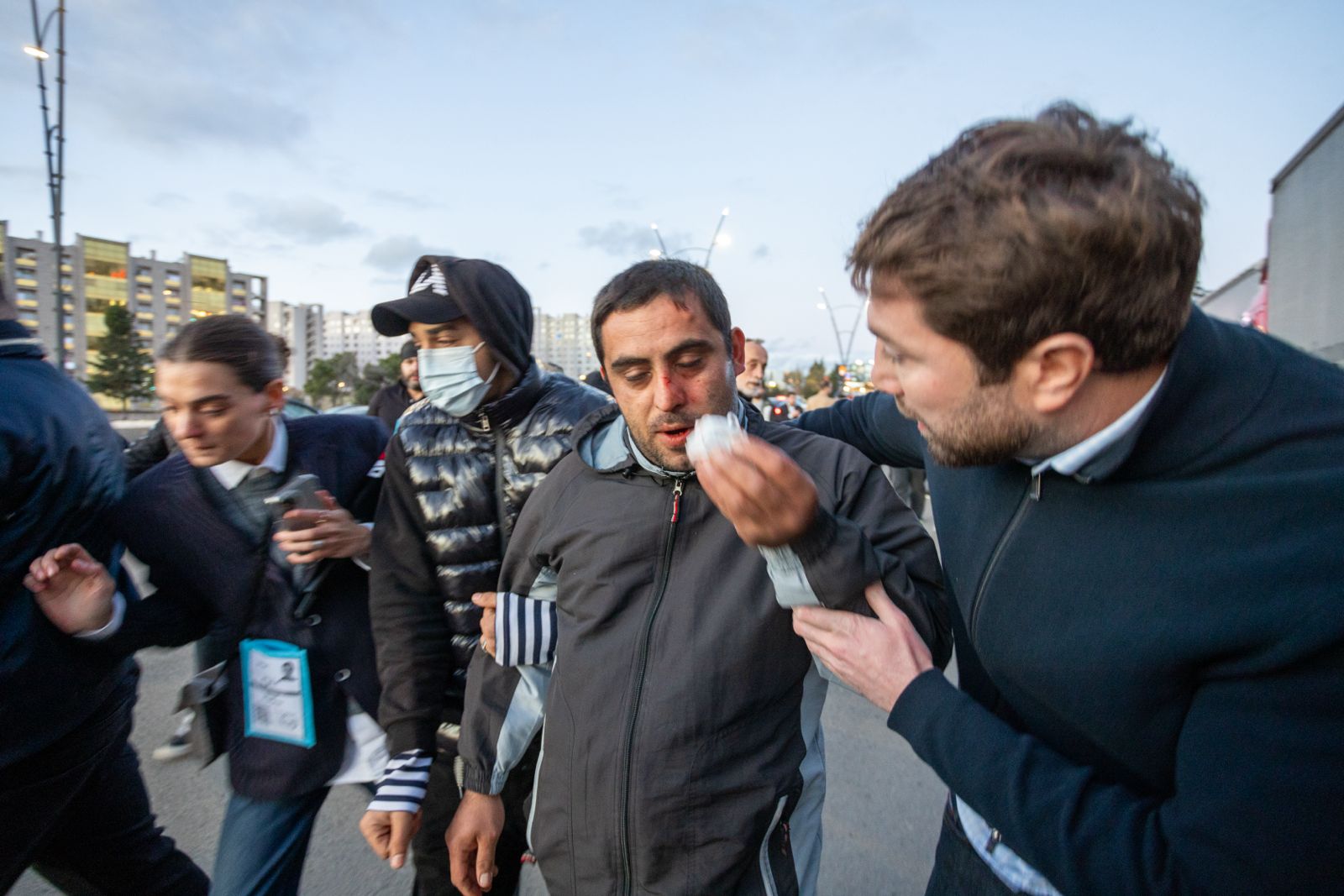
Additionally, reports of police involvement in removing observers from polling stations have raised serious concerns about state complicity in the electoral process.
“This was a coordinated effort to keep these schemes under wraps,” a We Vote coordinator said.
Pascal Allizard, Special Coordinator and head of the OSCE short-term observers commented on the election, stating that the election day was marked by “frequent compromises on vote secrecy and several procedural inconsistencies, as well as reports of intimidation and pressure on voters that negatively affected public trust in the process.”
Iulian Bulai, a representative from the Parliamentary Assembly of the Council of Europe (PACE), made a pointed statement suggesting that “free and fair elections were not assured.” His abrupt departure immediately after this remark left the audience with a lingering sense of ambiguity regarding the legitimacy of the electoral process.
His unexpected exit prompted Eoghan Murphy, the head of the OSCE mission, to step in and mitigate any potential fallout, steering the conversation away from contentious issues regarding election transparency.
Oleksiy Goncharenko, President of the PACE Committee on Migration and a Ukrainian MP who observed the elections, echoed these concerns about the electoral process.
“What I personally saw in the rural area is very, very disturbing. It clearly influences the results of elections, so they can’t be called fair and free,” Goncharenko told Euromaidan Press.
“It’s clear that Russia wants to have Georgia in its orbit. As always, they’re using democratic procedures to carry out anti-democratic actions.” Goncharenko said.
Opposition leaders rally supporters to rise up
The opposition parties have outright rejected the election results, alleging widespread fraud. “We won the election, and this is a theft of democracy,” stated Giorgi Vashadze, co-president of the largest opposition coalition.
The coalition has announced plans to kick off mass protests, demanding the annulment of the election results and calling for international mediation.
“We know that the Russians are pulling the strings in these elections,” said Marika Mikiashvili, a member of the opposition party Coalition4Change, during a press conference.
The Kremlin’s hand
In an emergency statement issued from the presidential palace, Georgia’s pro-European President Salomé Zourabichvili publicly rejected the election results.
“I don’t recognize the elections; it is the same as acknowledging Russia’s entry into Georgia and the submission of Georgia to Russia,”
Salomé Zourabichvili
The president’s comments underscored her alarm over what she described as orchestrated interference, marking a significant escalation in the nation’s political crisis.
“We have been caught up in Russian operations,” she added, reflecting her concern that the results were part of a broader “hybrid warfare” strategy to steer Georgia’s political course towards Moscow.
A source close to US intelligence services tipped off Bloomberg that the electronic infrastructure of the ruling Georgian Dream party might have been compromised.
“The Russians appear to have taken over key servers,” the unnamed source told Bloomberg.
Georgia’s opposition has drawn sharp parallels between the Russian hybrid interference in Georgia and its full-scale invasion of Ukraine.
“We’re standing up to the same enemy. The future of Georgia, free from Russian influence, is at stake,” said opposition activist Marika Mikiashvili.
The Saturday vote could either mark the end of 12 years of rule by the Georgian Dream or solidify its power with a constitutional majority in Georgia’s parliament. The party rose to power in 2012, following the country’s first peaceful transition of power, which many viewed as a response to growing discontent with President Mikheil Saakashvili’s previous administration.
Mikheil Saakashvili rose to power in the wake of the 2003 Rose Revolution, steering Georgia towards a pro-European direction. His presidency saw sweeping reforms to deepen ties with the EU and NATO. However, his ambitions were derailed by Russia’s 2008 invasion, which resulted in the occupation of about 20% of Georgian territory.
Despite Saakashvili’s economic reforms, many Georgians felt the benefits were unevenly spread, leading to widespread hardship. After a decade of switching between presidential and prime ministerial roles, fatigue with his leadership built up alongside accusations of authoritarianism.
Bidzina Ivanishvili, leader of Georgian Dream, capitalized on this discontent, rolling out a compelling campaign that tapped into the ideals of the Rose Revolution that had once propelled Saakashvili to power.
In 2012, the Georgian Dream coalition, backed by the enigmatic billionaire Bidzina Ivanishvili, rose to power by defeating Saakashvili’s United National Movement. Ivanishvili, who has ties to Russia, campaigned on a platform that promised both EU integration and improved relations with Moscow.
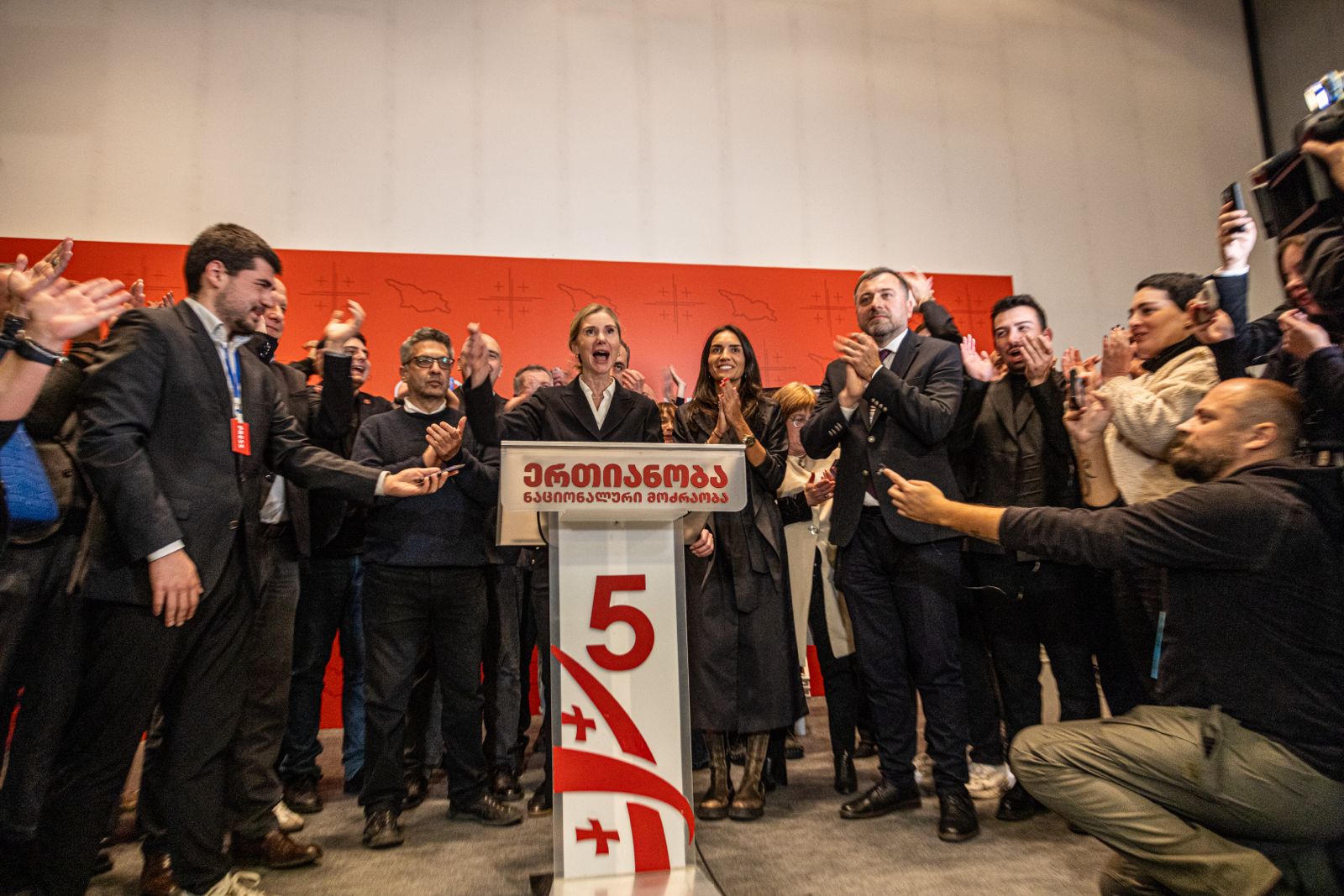
A key player in Georgia’s political scene, Ivanishvili made his fortune in Russia’s banking sector during the 1990s. Although he officially held power from 2012 to 2013, he has kept his grip on the Georgian Dream party as the de facto ruler.
Under Ivanishvili’s influence, Georgia ramped up trade with Russia while maintaining a formal pro-EU stance, but it has noticeably dialed down its NATO aspirations.
The situation took a sharp pro-Russian turn in May 2024 when Georgian Dream rammed through a “foreign agents” law, echoing similar legislation from Russia. This turn sparked widespread protests, prompting the government to crack down on dissent by bringing in police, which ramped up tensions with opposition groups.
In response, Georgia’s opposition vowed to bounce back in the parliamentary elections on 26 October 2024, aiming to push back against the government’s growing ties to Russia and reassert their commitment to European integration.
“It is a de facto referendum on Georgian accession to the EU,” stated Allizard during the press conference.
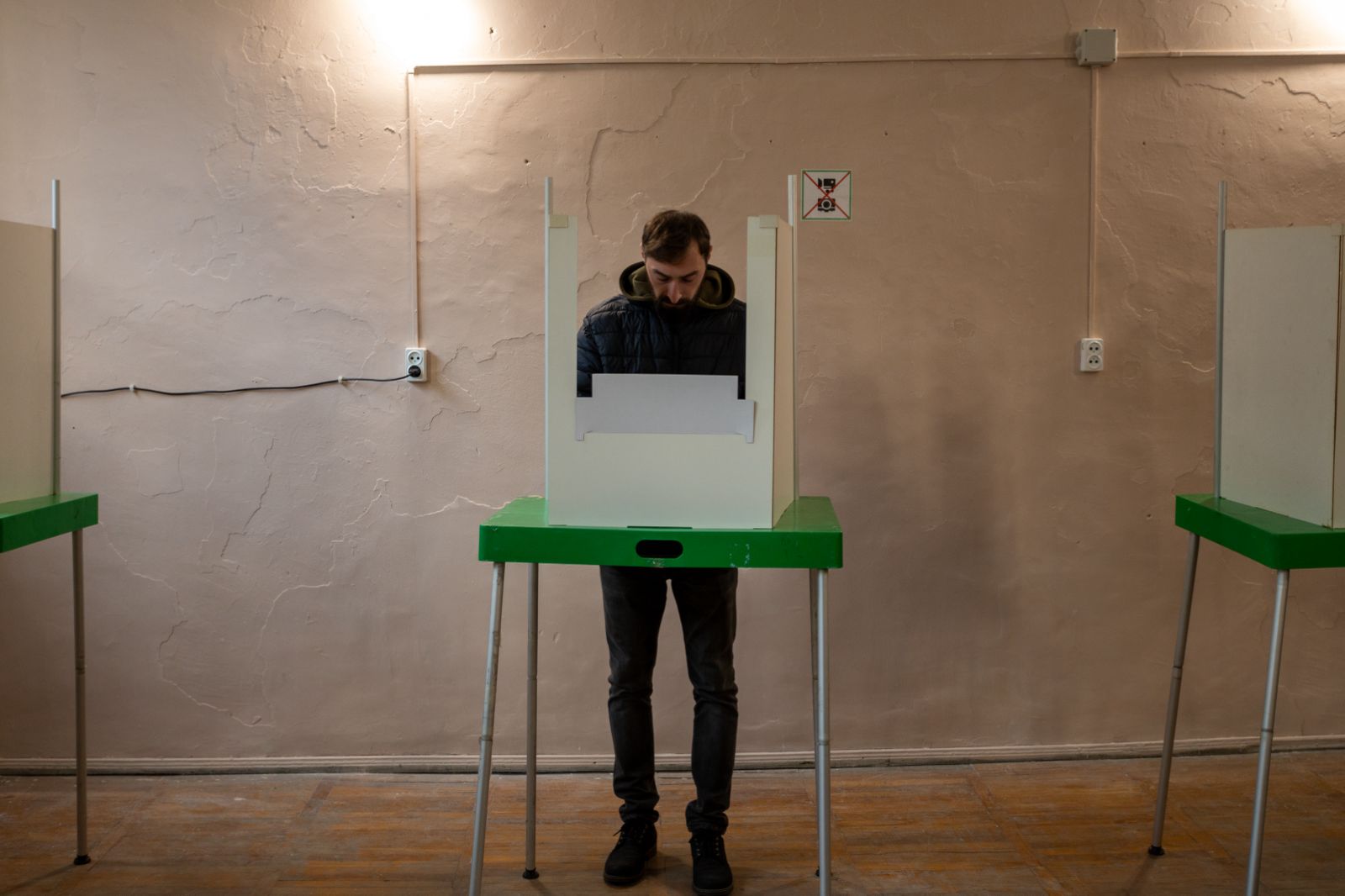
Campaigning on fear
According to a senior source from the opposition United National Movement (UNM), the ruling Georgian Dream party is heavily influencing its campaign narrative by drawing on the trauma of the 2008 Russo-Georgian war.
“The main propaganda tool for the Georgian Dream is the trauma of the 2008 war. They play the role of agitators, provoking fears of conflict with Russia to revive that trauma,” the source said.
The party’s rhetoric skillfully plays on public fears of defying Moscow, a tactic that strikes a chord with voters wary of instability.
The party warns that if the pro-European opposition comes to power, it could trigger what they describe as Georgia’s ” Ukrainization,” conjuring fears of war and economic instability. This narrative became front and center of the party’s campaign, featuring slogans like “With Georgian Dream, say yes to peace, no to war.”
However, the Georgian Dream’s aspirations have met with a lukewarm reception from civil society, marked by strong opposition to its “foreign agents” law, which has effectively stalled the country’s long-standing EU accession efforts initiated decades ago.
“Twenty percent of our land is occupied by Russia, and yet the leader of Georgian Dream, Bidzina Ivanishvili, says we need to apologize to the people who killed our citizens and took our territories during the Georgian war of 2008… That’s unacceptable,” Ana Minadze says.
According to a survey conducted by the National Democratic Institute, a striking 79% of Georgians back EU membership—a glaring disconnect with the ruling party’s policies that cast a shadow over its convincing parliamentary victory.
Ana Minadze, who emerged as one of the most recognizable civic leaders during the protests against the “foreign agents” law earlier this year, believes that the election results can not represent the true will of the majority.
“We’ve been in Europe, we’ve been in America — we know what the Western world is, and we know what Russia is. Every single person standing at these demonstrations knows exactly why they’re there,” she told Euromaidan Press.
Minadze, who gained popularity among the country’s civil society after an image of her applying lipstick in the reflection of a riot shield went viral, has struck a chord with many young Georgians.
Following the 26 October elections, she once again took to the streets to voice the sentiments of her generation, expressing disappointment with the electoral process and the ruling party’s pro-Russian stance.
“Today, the same motivation drives me. Georgia will never become Russia,” she said.
Related:
• The global implications of Georgia’s political crisis
• Georgia’s Foreign Agents law: Russia’s new frontline in its war against freedom in the world
• “Story of a dying empire”: Georgia’s “foreign agent” law protests echo Ukraine’s Euromaidan




